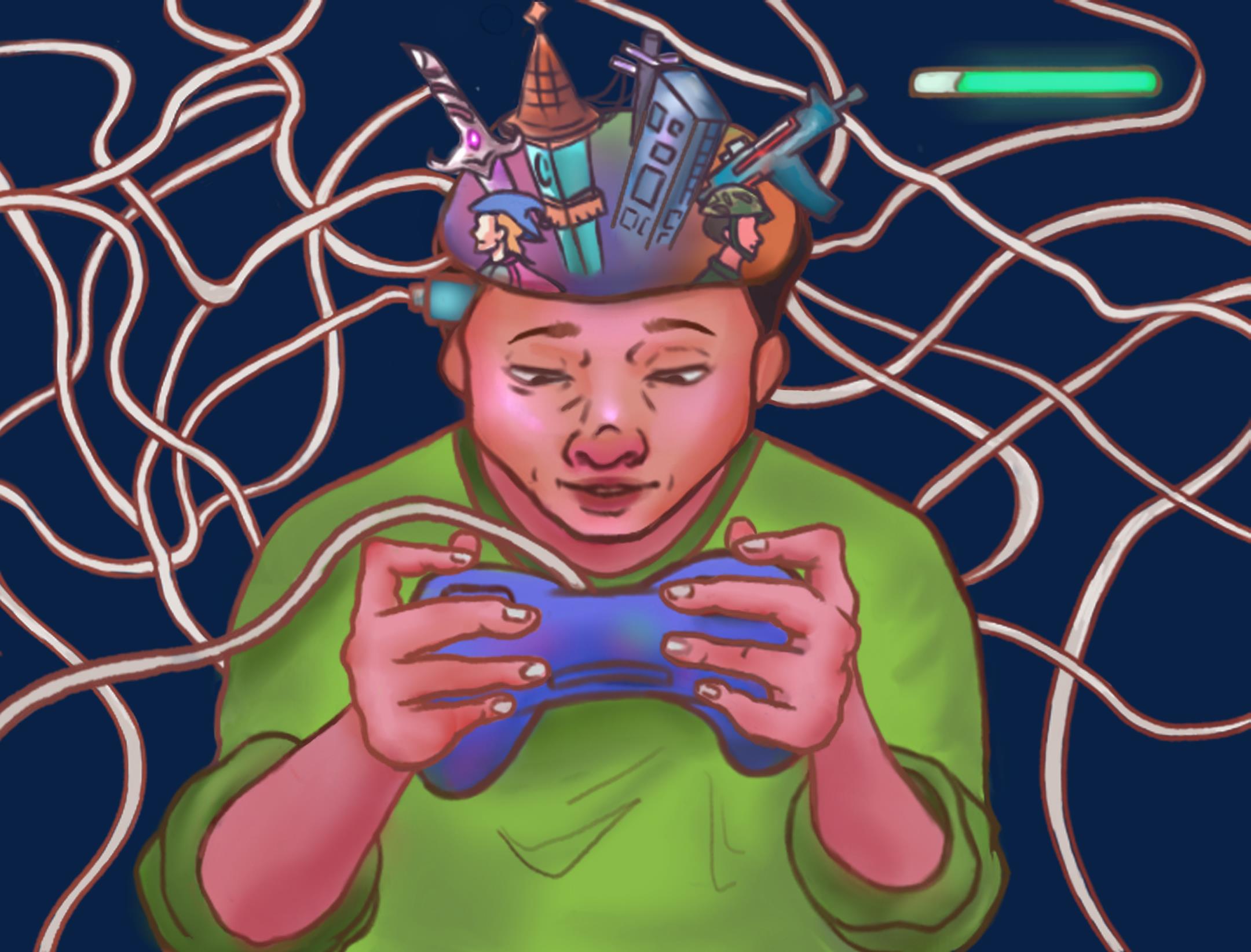The Flip Side: How online gaming takes cognitive skills to a new level
Originally published from HF Vol. 36 Issue 3
The inner child inside us is over the cloud nine whenever we get the chance to play video games, reliving childhood memories of outdated consoles and instances of being scolded by parents for playing too much. But as much as we want to savor these moments that spark momentary joy and pleasure, people that ridicule gaming, believing that it brings no good also spoil the fun. Navigating the other side of the coin, unbeknownst to many, lies a huge potential that rests dormant within the virtual worlds. Given the many video games now available and accessible at our disposal, what else, aside from being a good sport, can it teach us?
Level 1: Trials by fire
In the battlefields, two forces face off against each other with the goal of conquering the battleground, crowning the last team standing, or the team with least losses, as victor. Multiplayer online battle arena (MOBA) games like Mobile Legends: Bang Bang (ML), League of Legends (LOL), Arena of Valor, and Defense of the Ancients (DOTA) are well-known examples of this, as they pave the way for enhancing one’s problem-solving skills, decision-making accuracy, strategizing, mind processing, and body and mind coordination.
Every second counts and the momentum of the game could shift in split seconds. Players adapt to the situation along with provided in-game information that also takes place in a fast-paced manner. Coming up with sound in-game decisions instantly puts players under the gun but this could challenge one’s ability to solve matters quickly in times of great adversities. Just like what happens in MOBA games, swift decision making is applied in map and time awareness, positioning, and skill use.
More than the need for speed, precision and coordination in gaming are also key factors that lead to victory. In the highly competitive environment of gaming, players cannot afford to have hits and misses during a do-or-die moment. One wrong click in survival shooting games like PlayerUnknown’s Battlegrounds (PUBG), Call of Duty (COD), Garena Free Fire, and Valorant, the momentum could easily turn and put the game over. Applying mind and body coordination outside the battlegrounds, gaming may help us in performing tasks that demand precise physical movements.
Level 2: Making the shot calls
Aside from developing outstanding and vast game knowledge, gaming also lets courage take the lead. Forming proper team synergy could make or break crucial matches, encouraging players to explore a variety of identities and styles to adjust with their teammates’ strengths and weaknesses. For some, this means taking command of the team and calling the shots. From stepping up to establish directions, making strategies on the fly – all these are required to survive in game matches, ultimately developing effective leadership under pressure.
Aside from learning to communicate mistakes or points for improvement towards others, a team leader is also expected to develop self-awareness and competence, which they may use to set an example for their team or promote healthy rivalry for the team.
On the other hand, multiplayer games may turn demoralizing if the turn of events no longer favors one’s side. Often, this serves as a test of a leader’s mental fortitude and composure. With victory on the line, a leader should learn to adapt with the game environment and uplift the spirit of the team through dire straits. Delegating tasks and nurturing individual roles is a painstaking task for a goal-oriented leader, but one that gaming highly encourages. By taking charge during crucial moments, gaming also promotes confidence in taking leadership roles.
The leadership learned in a game always resonates beyond the four corners of the screen, from academics, organizational activities, work, and even serving as a precursor to making major changes in life. Gaming as an instrument for leadership improvement may seem bizarre that deviates from conventional ways we know of but it is time to go off the old school and recognize the possibility of growth in gaming.
Level 3: Expanding horizons
Teamwork makes the dream work. The blockade towards the game objectives may appear impassable at times, yet team efforts never fail to make the victory facile. Gaming does not only unify individuals within a team composition, but also connects them to a community that shares the same interest.
The gaming industry is never exempt from stereotypes, as gamers tend to be labelled aloof from the world due to their knack of enjoying gaming in a limited space. People tend to always look at them as the silent ones, the one impossible to talk to, the cold-hearted beings who seem to lack the ability of communicating their thoughts. But despite the absence of physical interaction of gamers with others and a stack of stereotypes pressed against them, multiplayer gaming is also a channel of interpersonal communication. Reaching other players from the far corners of the world through servers, the connections within a community continue to diversify. As people from different age groups, races, gender, socioeconomic status, and religions come together from a distance, gamers embrace diversity in ways that many don’t get to experience, proving that there is more to the stereotypical notions that the world keeps on holding from.
On the flip side, the conventional society also often associates gaming with addiction, social disconnection, poor academic or work performance, sleep deprivation, and stress. For sure, every Filipino gamer has experienced hearing the phrase: “kaka-computer mo kasi ‘yan!” in their household, as if games could be the one and only source of all crappy things that come in life. Without moderation, these lines may turn out to be true. But contrary to popular belief of gaming being pointless and detrimental, the gaming industry now opens a field of opportunities and careers like Esports, with some players taking their beastmode spirit to an extra mile. As aspirants take chances of turning a mere pastime into a viable career, gamers know how to win and conquer battles from left and right, and shoot their way straight to triumph.
***
Similar to gaming, life comes across to perilous trails of quests. One may have outstanding gameplay and builds, but never a flawless one. We don’t need to be gamers to know no specific play style can work forever, nor is there a certain path to victory every single time. What gaming can teach us, however, is that there is always room for comebacks and clutches. After all, online games cannot be paused just like how life goes on.
Illustration by Juliana Octavio




